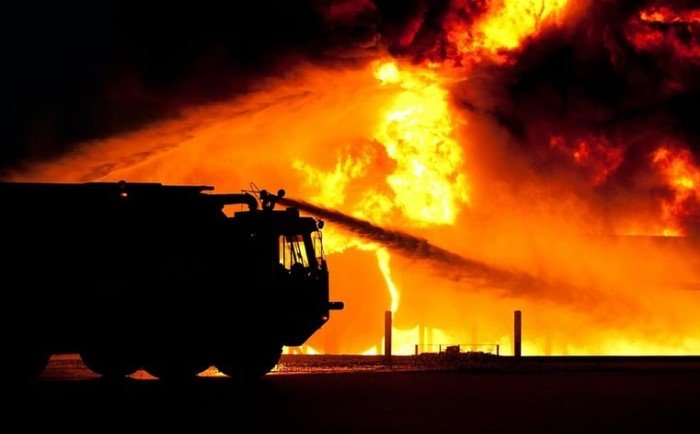A Weekend of Blazes Keeps Fire Crews on High Alert
Firefighters across Georgia battled more than 150 wildfires over the weekend as dry conditions and gusty winds created a perfect storm for flames to spread. The Georgia Forestry Commission (GFC) reported that the fires erupted between March 1 and March 2, marking one of the most active wildfire weekends of the year so far. Officials warn that this could be just the beginning.
Weather Conditions Set the Stage for Disaster
Wendy Burnett, Public Relations Director for the GFC, pointed to a mix of factors that fueled the fires. A lack of recent rainfall, low relative humidity, and high winds made it nearly impossible to control flames once they ignited.
“It’s been a minute since we’ve had any significant rain throughout the state pretty much. And then we also have low relative humidity for the past few days. And then Saturday in particular, we had some really gusty winds,” Burnett explained.

A red flag warning was issued over the weekend, signaling an increased risk of fires spreading quickly. Even the smallest spark, whether from human activity or natural causes, had the potential to spiral into an uncontrollable blaze.
Where Are the Fires Burning?
The wildfires were scattered across Georgia, with some areas hit harder than others. Specific counties reporting major fire activity include:
- South Georgia: One of the hardest-hit regions, with multiple fires reported near Albany.
- Central Georgia: Dry brush and wooded areas saw fast-moving flames.
- North Georgia: While not as heavily impacted, officials remain cautious due to dry conditions.
The exact size of the total acreage burned is still being assessed, but early estimates indicate significant damage to forested areas and farmland.
Fire Crews Struggle to Keep Up
Firefighters have been working around the clock to contain the blazes, but resources are stretched thin. With multiple fires burning simultaneously, local departments are relying on support from state agencies and volunteer fire brigades.
“The sheer number of fires has put an immense strain on firefighting resources,” one local firefighter shared. “Every time we get one under control, another one pops up somewhere else.”
Water drops from helicopters and controlled burns are being used to slow the spread. However, the unpredictable wind patterns have made containment efforts challenging.
Some Relief on the Horizon, But More Fires Expected
Rain is in the forecast for the upcoming week, offering a temporary reprieve. Burnett noted that precipitation could help reduce the immediate fire risk, but it won’t solve the underlying issue.
“We expect wildfire numbers in March to be above average this year,” she said. “Even with some rain, dry spells and windy days can bring conditions back to a dangerous level quickly.”
Officials are urging residents to avoid outdoor burning and take precautions to prevent unintentional fire starts. With peak wildfire season still ahead, Georgia could see an extended battle against the flames in the coming weeks.
